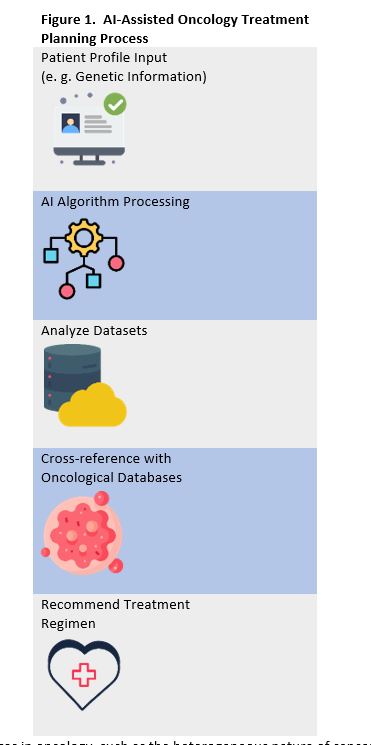AI Governance Framework for Oncology: Ethical, Legal, and Practical Considerations
Shivansh Khanna
School of Information Sciences, University of Illinois at Urbana-Champaign
Ishank Khanna
Sri Aurobindo Medical College and PG Institute, Indore, India
Shraddha Srivastava
School of Information Sciences, University of Illinois at Urbana-Champaign
Vedica Pandey
Sri Aurobindo Medical College and PG Institute, Indore, India
Keywords: Adaptive Governance, AI Applications, Ethical Compliance, Oncology, Patient-Centered Care, Regulatory Compliance, Technological Robustnes
Abstract
Background: Existing general AI governance structures offer a basic framework; however, the specific complexities associated with cancer treatment and research call for a more customized strategy. This study proposes an extensive AI governance framework specifically designed for oncology, drawing upon existing models and adapting them to meet the distinct needs of this field.
Methods: The approach of the study involved a systematic analysis of existing AI governance frameworks and their applicability to oncology. We identified key elements from European ethics guidelines for trustworthy AI, the Universal Declaration of Human Rights, and various models focusing on ethical assessment, algorithmic impact, and innovation in AI. These elements were integrated into a proposed framework containing seven core domains: ethical and human rights compliance, technological robustness and safety, transparency and accountability, equity and non-discrimination, innovation and adaptive governance, stakeholder engagement and patient-centered care, and legal and regulatory compliance.
Implications: The proposed framework emphasizes ethical and human rights considerations, ensuring AI applications in oncology adhere to principles of beneficence, non-maleficence, autonomy, and justice. It advocates for robust quality assurance, continuous impact assessment, and transparent decision-making processes. The framework addresses the need for bias mitigation to ensure equity, encourages innovation through adaptive governance, and emphasizes the importance of stakeholder engagement. Legal and regulatory compliance, aligned with both national and international standards, forms a crucial aspect of the framework. Implementation strategies include regular audits, evaluations, and feedback loops to ensure effectiveness and adaptability.
Conclusion: This study presents an AI governance framework to ensure that AI applications in oncology are not only technologically advanced but also ethically sound, legally compliant, and patient-centered.
Keywords:
Adaptive Governance, AI Applications, Ethical Compliance, Oncology, Patient-Centered Care, Regulatory Compliance, Technological Robustnes





